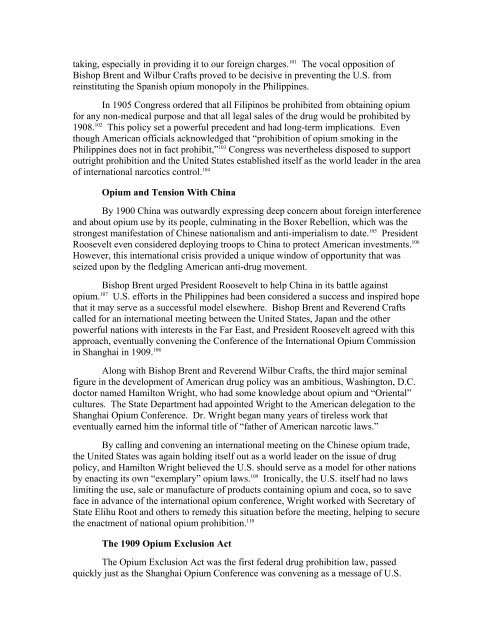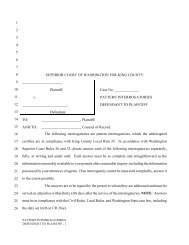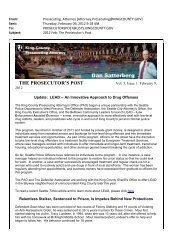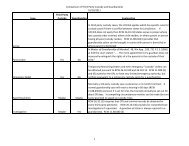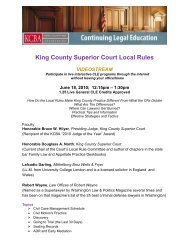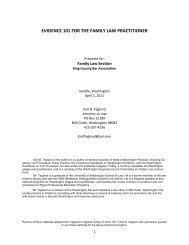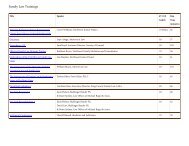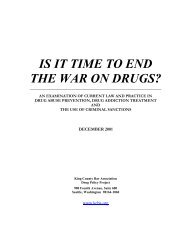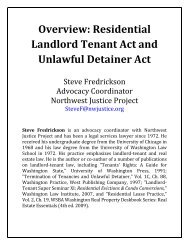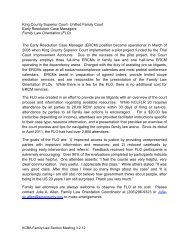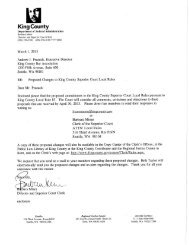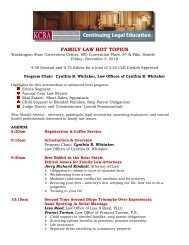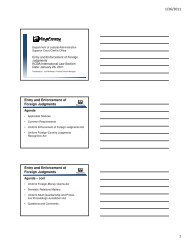Effective Drug Control: Toward A New Legal Framework
Effective Drug Control: Toward A New Legal Framework
Effective Drug Control: Toward A New Legal Framework
Create successful ePaper yourself
Turn your PDF publications into a flip-book with our unique Google optimized e-Paper software.
taking, especially in providing it to our foreign charges. 101 The vocal opposition of<br />
Bishop Brent and Wilbur Crafts proved to be decisive in preventing the U.S. from<br />
reinstituting the Spanish opium monopoly in the Philippines.<br />
In 1905 Congress ordered that all Filipinos be prohibited from obtaining opium<br />
for any non-medical purpose and that all legal sales of the drug would be prohibited by<br />
1908. 102 This policy set a powerful precedent and had long-term implications. Even<br />
though American officials acknowledged that “prohibition of opium smoking in the<br />
Philippines does not in fact prohibit,” 103 Congress was nevertheless disposed to support<br />
outright prohibition and the United States established itself as the world leader in the area<br />
of international narcotics control. 104<br />
Opium and Tension With China<br />
By 1900 China was outwardly expressing deep concern about foreign interference<br />
and about opium use by its people, culminating in the Boxer Rebellion, which was the<br />
strongest manifestation of Chinese nationalism and anti-imperialism to date. 105 President<br />
Roosevelt even considered deploying troops to China to protect American investments. 106<br />
However, this international crisis provided a unique window of opportunity that was<br />
seized upon by the fledgling American anti-drug movement.<br />
Bishop Brent urged President Roosevelt to help China in its battle against<br />
opium. 107 U.S. efforts in the Philippines had been considered a success and inspired hope<br />
that it may serve as a successful model elsewhere. Bishop Brent and Reverend Crafts<br />
called for an international meeting between the United States, Japan and the other<br />
powerful nations with interests in the Far East, and President Roosevelt agreed with this<br />
approach, eventually convening the Conference of the International Opium Commission<br />
in Shanghai in 1909. 108<br />
Along with Bishop Brent and Reverend Wilbur Crafts, the third major seminal<br />
figure in the development of American drug policy was an ambitious, Washington, D.C.<br />
doctor named Hamilton Wright, who had some knowledge about opium and “Oriental”<br />
cultures. The State Department had appointed Wright to the American delegation to the<br />
Shanghai Opium Conference. Dr. Wright began many years of tireless work that<br />
eventually earned him the informal title of “father of American narcotic laws.”<br />
By calling and convening an international meeting on the Chinese opium trade,<br />
the United States was again holding itself out as a world leader on the issue of drug<br />
policy, and Hamilton Wright believed the U.S. should serve as a model for other nations<br />
by enacting its own “exemplary” opium laws. 109 Ironically, the U.S. itself had no laws<br />
limiting the use, sale or manufacture of products containing opium and coca, so to save<br />
face in advance of the international opium conference, Wright worked with Secretary of<br />
State Elihu Root and others to remedy this situation before the meeting, helping to secure<br />
the enactment of national opium prohibition. 110<br />
The 1909 Opium Exclusion Act<br />
The Opium Exclusion Act was the first federal drug prohibition law, passed<br />
quickly just as the Shanghai Opium Conference was convening as a message of U.S.


